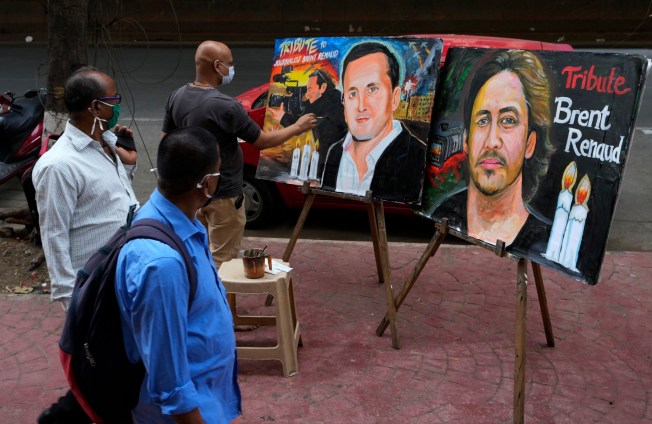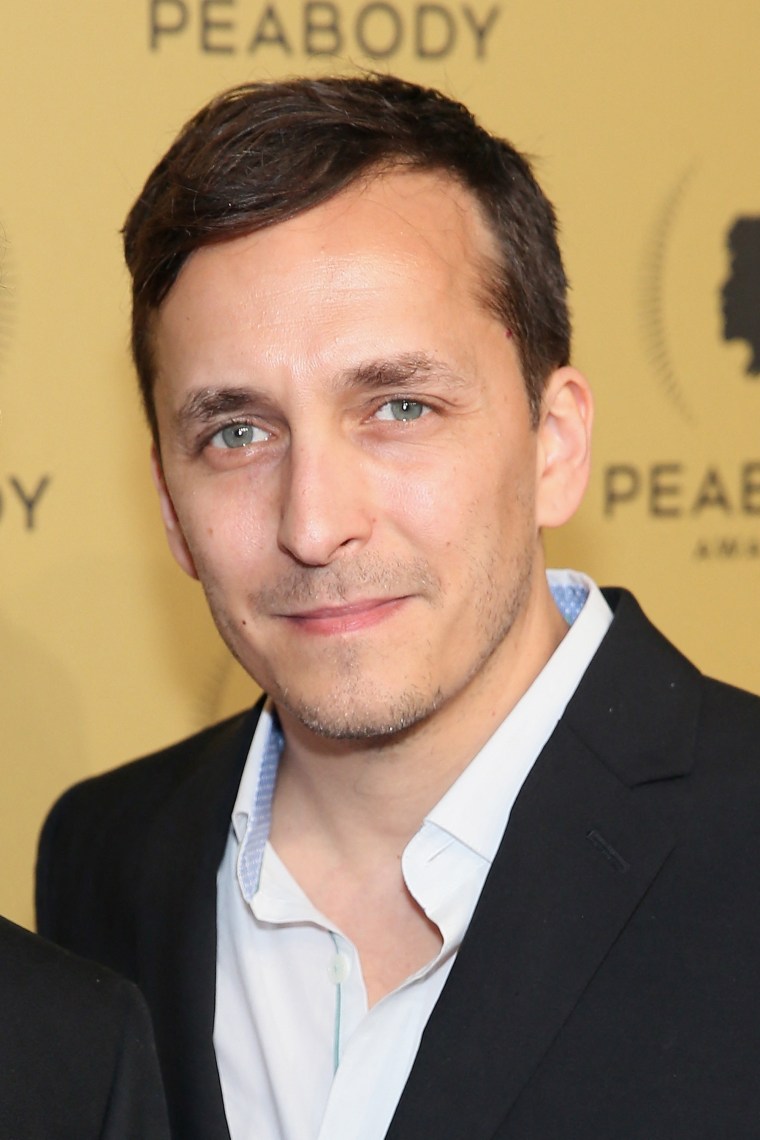Brent Renaud was renowned not just for his war reporting, but for the compassion he brought to his work. From Iraq to Somalia to Mexico, his videography explored human vulnerability and human connection at the worst of times. A U.S. soldier in Fallujah calls his mother on Mother’s Day; a physical therapist coaxes a young survivor of the earthquake in Haiti; a Texas gun dealer’s callous but candid response to why he sells automatic rifles to Mexican drug cartels. Brent’s heart was revealed in the shots he crafted for the films he did.
On Sunday, March 13, Brent was shot dead in the city of Irpin while covering Russia’s invasion of Ukraine – the second journalist killed since Russia launched its assault on February 24. Juan Arrendondo, a U.S. reporter working with Brent, was injured in the Irpin attack, underscoring the dangers facing those trying to cover this war.
Brent and his brother, Craig, worked as the Renaud Brothers, and together they won seemingly every broadcast award possible, from the Peabody for “Last Chance High” (2014), about a Chicago high school for troubled youth; two duPont-Columbia University journalism awards, one in 2012 for a moving look at how Partners in Health helped children injured in the Haiti earthquake; another the following year for “Vanguard: Arming the Mexican Cartel,” a riveting exploration of how American gun dealers fueled drug cartel murders in Mexico.
The awards told one story, their work ethic told another. They were always working on the next project.
The Renaud brothers were from Arkansas, graduates of Central High School in Little Rock. That sense of being rooted in a place where the trauma of race had scarred a nation resonated in their work. “Brent really valued people,” said Jeff Newton, a journalist who worked with Renaud often over the last 10 years. “Brent didn’t see war as people killing other people. He was focused on the suffering. ‘I have to record the suffering,’ he would say.”

Brent and Craig Renaud began their professional career working with journalist Jon Alpert; and their breakthrough film, “Dope, Sick, Love” (2005) for HBO followed two heroin addicts eking out an existence on the streets of New York. The brothers’ extraordinary access, gained over years, explored the love between two souls in trouble – the love between individuals even in the midst of a drug war.
That film was one of the first documentaries recorded using the small digital cameras which have now become ubiquitous. When “Dope, Sick, Love” aired, the Renauds were already filming “Off to War,” an intimate look at the 39th Infantry Brigade of the Arkansas National Guard and their families. The three-hour, 10-part series followed the soldiers from Clarksville, Arkansas, from basic training to their deployment to Iraq, explored their burgeoning disillusionment there, and showed the disorienting process of returning from war. It was one of the earliest documentary explorations of the impact of post-traumatic stress syndrome (PTSD) – and its cost to society.
Brent went to Ukraine to film a series on the global refugee crisis for TIME Studios. He was supposed to have been gone before the war broke out, but once it did, he remained committed. Brent had 20 years’ experience working in conflict zones; he had taken one of the first courses started by RISC (Reporters Instructed in Saving Colleagues), the organization writer Sebastian Junger founded after photographer Tim Hetherington was killed in Libya. Several friends said they had been involved in helping Renaud find local producers or contacts in Ukraine, but by the time they reached him he had already found someone.
Both brothers had been active in pointing out the security issues facing a news environment where freelancers have to navigate dangerous situations. In a 2013 interview with Filmmaker Magazine, Brent’s brother Craig pointed out that “the most obvious benefit of being backed by a major news organizations is that if something goes wrong and you are kidnapped or in need medical evacuation, you at least have some bit of hope that they might help you out.”
Those who knew him say they are certain Brent would have been wearing his helmet and a flak jacket with the word “PRESS” when he went out on Sunday. That’s part of the drill for every reporter who has worked in hostile environments. But following the drill is no guarantee of protection. Brent got hit in the neck and bled out before he could reach the hospital.
